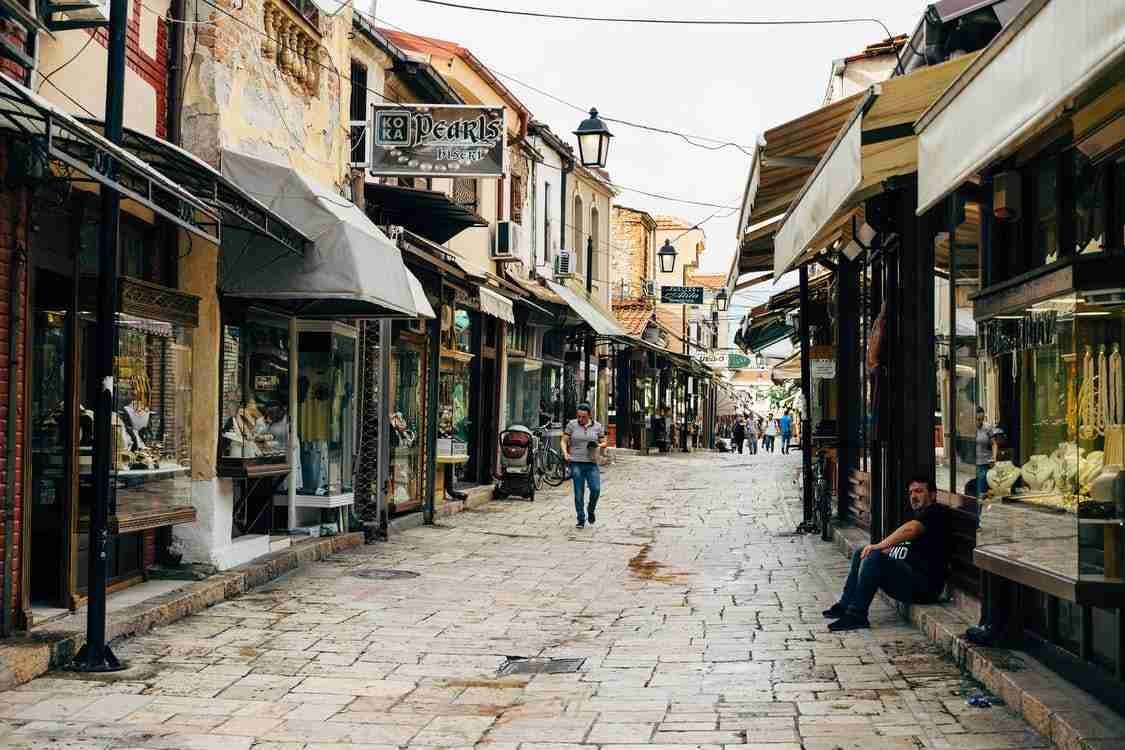Skopje
Skopje is the political, cultural, economic and academic centre of North Macedonia.
With a population of about 900.000 inhabitants around a ¼ of North Macedonia’s population live in greater Skopje. Located on the upper Vardar River and a north–south Balkan route between Belgrade and Athens, Skopje is a centre for metal-processing, chemical, timber, textile, leather, and printing industries.
Skopje today experiences many environmental challenges including: air pollution that regularly far exceeds WHO recommended levels, polluted freshwaters, rudimentary solid waste disposal, and soil pollution with heavy metals from industry. Security of water supplies are particularly at risk from both pollution and climate change.
Switching to more sustainable energy sources is a key opportunity to build community resilience and alleviate critical air pollution challenges. Despite having more than 280 sunny days per year, production of solar power in N. Macedonia is less than 1% of demand. In many parts of the city building quality is still poor, and citizens are using solid wood fuels and even waste for heating, exacerbating poor air quality. Cooling demands are going to keep rising as the city already often exceeds 40 degC during the ever-hotter summers.
Mobility and public space are also integrated issues that have a massive impact on quality of air and quality of life. Today the city seems to be more made for old cars than young people. Plans for things like a bus-rapid-transit system come and go. But a sort of systemic mobility shift that could and should be possible seems to remain ever-distant. Pilot public space ‘placemaking’ projects have shown what can be achieved through greater citizen involvement in creating and taking care of their local environment, but scaling of these experiments still needs to be achieved.
Recognizing that business-as-usual approaches were not adequately meeting the city’s challenges, in 2017 the City of Skopje initiated the first public sector innovation lab in the Balkans, called the City of Skopje Innovation Centre –SkopjeLab (with support of the United Nations Development Programme). The lab works to involve stakeholders from across the city in co-creation and co-design of solutions to important issues such as air pollution, public services, waste management systems and smart city innovation. The lab is activated by the NGO SmartUP.
SkopjeLab has helped to create the foundations in Skopje for taking a more co-creative and integrated portfolio approach to managing change for the city, and for the public sector to take more of an impact investment approach.Then, as a next step to building more multilateral leadership for radical change in the city, the Foundation Skopje Development Institute has been established in 2022 with the backing of the City of Skopje and the National Cyril and Methodius University.
Thanks to these initiatives led by Smart Up, the City of Skopje and the Skopje Innovation Lab – Skopje is starting to advance development towards a climate neutrality and a circular, regenerative economy.
There is now much to expand and so very much more to do.



